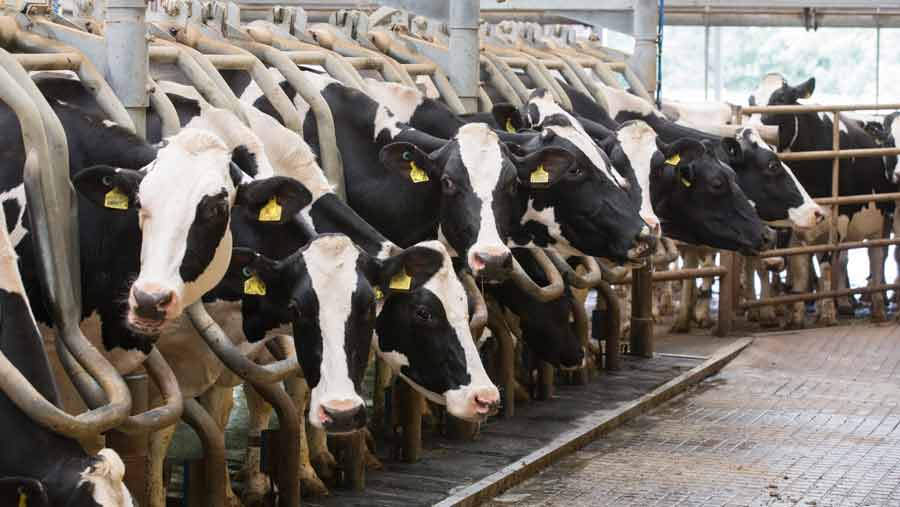Third of British dairy farmers considering quitting sector
 © Tim Scrivener
© Tim Scrivener Almost one-third of British dairy farmers (32%) are considering their future within the sector, with concern growing over insufficient returns, volatile markets and the scale of on-farm investment, a new NFU report has revealed.
Of the 600 dairy farmers surveyed by the union last month, 9% believe they are likely to stop producing milk by 2025 – a figure that is up from 7% last year – with a further 23% saying they were unsure if their business would continue to production beyond 2025.
The main concerns centred on the effect of government regulation (87%), feed prices (84%), energy prices (83%) and cash flow and profitability (80%).
See also: Bovine TB: Farmers and vets suffer mental health toll
The survey comes as the latest figures from AHDB show there are 7,500 dairy producers in Great Britain, a 4.8% decline on the previous year.
Commenting on the survey’s findings, NFU dairy board chairman Michael Oakes said: “It’s clear that significant inflationary pressures, combined with below cost of production prices are continuing to put the resilience of British dairy farming businesses under threat.
“We are now facing a crisis of confidence among Britain’s dairy farmers.”
Calling on the government to maximise the sector’s potential by ensuring the right environmental, regulatory and trade framework is in place, Mr Oakes added: “It’s vital we reverse this trend of boom or bust and invest in our supply chains.
“New industry-wide regulation on contracts must support fairer, more transparent and accountable supply chains. But regulation isn’t a silver bullet.”
Cornish dairy farmer and NFU dairy board member Stephen Dark told Farmers Weekly that the challenges within the sector extend beyond the weak milk price.
“With prices dropping to the region of 36p, which is very close to, if not below, the cost of production, we’ve seen our margins vanish over the past few months,” he said.
“The prices are making others consider their future, but there are other challenges involved.
“It’s the struggle over labour, finance costs – with interest rates the highest we’ve seen for many years – and also compliance with the incoming slurry regulations.
“For the farmers that are going to carry on dairying, the majority are going to have to invest a significant amount of money in infrastructure just to be compliant.”
The knock-on effects, Mr Dark said, will see farmers reluctant to make long-term commitments to staying in the sector, and he urged milk processors not to squeeze too hard.
“With prices so low, farmers are not going to commit to long-term investments,” he said.
“It could get to the point where so many quit and milk could be short – processors could see their milk pools diminish before their eyes.
“I’m still optimistic and I think dairy has a bright future, but we’re in a time where we’ve got to knuckle down.”
